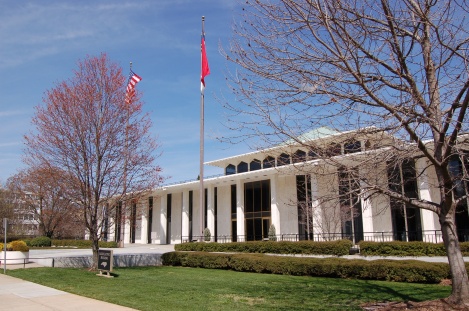
MaryKent Wolff
Staff Writer
As it sits on the forefront of the political stage, many Americans are keeping a watchful eye on North Carolina’s legislature to follow issues surrounding partisanism, including gerrymandering.
In the past year, the U.S. Supreme Court has rejected an appeal to reinstate a strict North Carolina voting ID law; a lower court found the state to have targeted minorities when drawing voting districts.
“On August 11, 2016, this Court unanimously concluded that Defendants unjustifiably relied on race in drawing lines creating twenty-eight majority-minority districts in the 2011 state legislative districting plans, in violation of Plaintiffs’ rights under the Equal Protection Clause of the Fourteenth Amendment,” read an order from a Greensboro federal court
In October at the same federal court, which housed a three-judge panel tasked with deciding how to move forward in dealing with North Carolina’s gerrymandering, it was determined that seven North Carolina House districts and two State Senate districts would be redrawn. This decision came after a four-day trial surrounding the lawsuit of Common Cause v. Rucho and states that an independent party will be hired to redraw the maps.
“In general terms, the Court expects to direct the Special Master to assist the Court in further evaluating and, if necessary, redrawing the Subject Districts by developing an appropriate plan remedying the constitutional violations allegedly rendering the Subject Districts legally unacceptable,” said the judges in a published order.
Nathaniel Persily of Stanford Law School is to be hired as the Special Master. Those opposed to this decision were given two days to suggest a replacement, but none were agreed upon in the time frame.
“This is a stunning rebuke of Republican legislators who refused to fix their racists maps and a colossal political failure from Speaker [Tim] Moore and Senator [Phil] Berger,” Democratic party leader Wayne Goodwin said. “They had a chance to fix their maps and doubled down instead—and now the courts will fix it for them.”
On the other side of the aisle, North Carolina Republicans have remained somewhat quiet as Democrats have called the order a success. Some Republican legislators still argue that the districts are fair and are trying to delay the redrawing until after the 2018 elections while some conservatives are applauding the court’s decision.
“Competitive districts make Congressmen more sensitive to the will and interests of the voters — Democrat, Republican or unaffiliated — in their district,” said self-described conservative Republican Morton Lurie, who criticized the 2016 maps that gave Republicans an edge. “I know that is difficult, but the current districts prevent many, many North Carolinians from being represented by someone sensitive to their needs and interests.”
All of this comes in a time where bipartisanism is rare in North Carolina. The Republican party holds a supermajority in the state House and Senate and have made some attempts to take power away from Gov. Roy Cooper, a Democrat. There have also been a variety of new bills introduced in recent weeks by Republicans that are meant to affect judicial elections by making them more partisan, canceling primaries for judicial elections in 2018 and changing the process so that all judges must be elected every two years.
